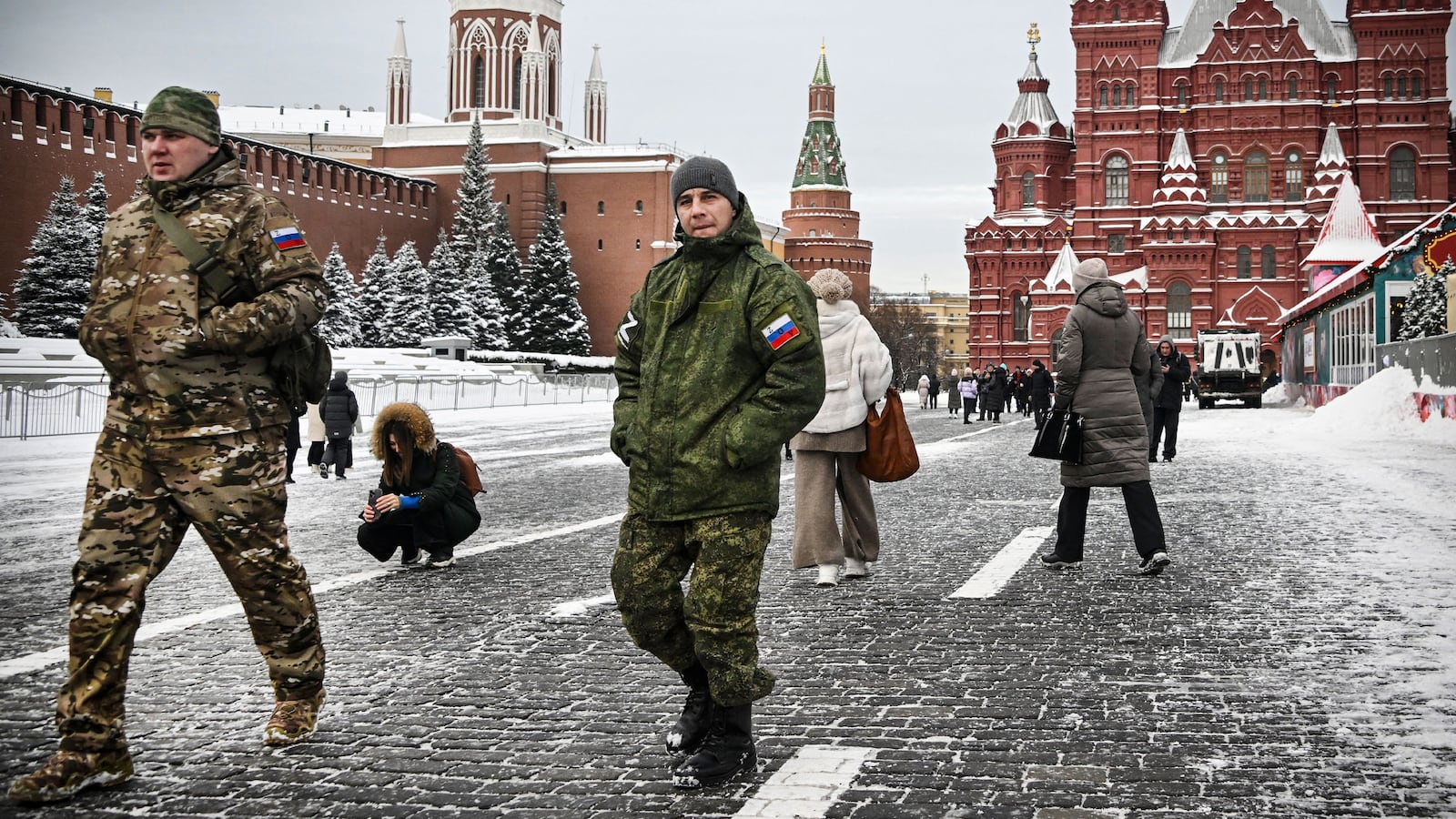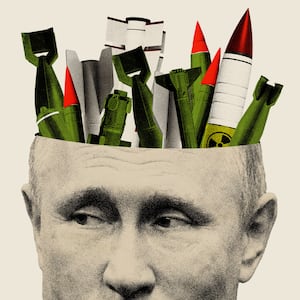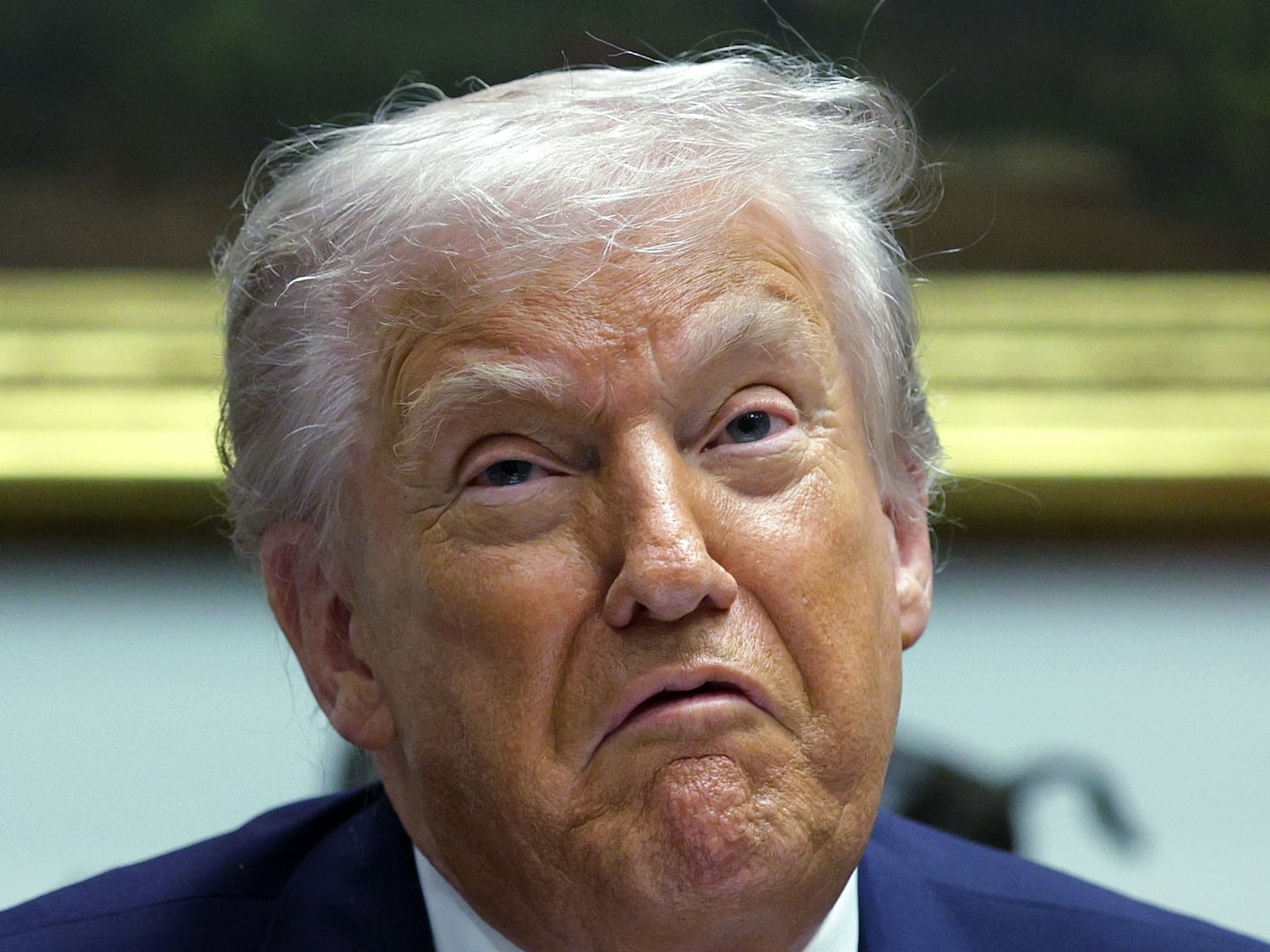Russian oligarchs and state-owned companies are increasingly running private military companies and recruiting and training their own battalions for Russia’s war in Ukraine.
Russian billionaire Viktor Shendrik, the head of the security department of Russian Railways, has reportedly been backing a detachment of Russian fighters made up of a group of football fans called “Espanyola,” according to iStories (an independent outlet also known as Important Stories or Vazhnie Istorii).
Shendrik is close with the Rotenberg brothers, Arkady and Boris Rotenberg—two other Russian billionaires who are longtime friends of Russian President Vladimir Putin and who were reportedly interested in having their own private military company (PMC).
Espanyola was first created last year, but Shendrik recently began sponsoring the group, sources told iStories.
But the group isn’t just a security group—the group is part of the Redut PMC, which is operated by the Russian Ministry of Defense, and has its own sniper, reconnaissance, and assault capabilities, according to iStories. Putin’s United Russia party took control of the PMC last year, according to an intelligence assessment from the Main Directorate of Intelligence of the Ministry of Defense of Ukraine. And the Espanyola battalion has been fighting in Ukraine, according to the intelligence report.
In fact, Espanyola’s intelligence chief was recently killed in Ukraine, the group confirmed in a social media post earlier this week.
This battalion is just one example of how central PMCs are to Russia—even after the death of former Wagner Group boss Yevgeny Prigozhin, Sean McFate, a leading expert on mercenaries, told The Daily Beast.
“The Kremlin is still using mercenaries and private force as a major tool of warfare,” McFate said.
Shendrik and the Rotenberg brothers are not alone in backing PMCs that then get sent to Ukraine.
Gazprom, the state-owned energy company, has been working on several private military companies behind the scenes, the BBC previously reported. Russian Prime Minister Mikhail Mishustin gave Gazpromneft, an oil subsidiary of Gazprom, permission to create a private security group for its infrastructure, and the groups were tasked with protecting Gazprom-related entities.
But since then, video footage has surfaced on social media showing fighters from one such battalion, called Potok or “Torrent” battalion, fighting in Ukraine. Moscow reportedly sent the group to flank Wagner Group while it assaulted Bakhmut in Ukraine.
Other Russian agencies have been jumping into the action as well. Roscosmos, Russia’s space agency, has been backing “the “Uran” or Uranus Battalion, since at least last year, according to the FT. With a training center in the Pskov region, the battalion focuses on training shooters, snipers, machine gunners, medical instructors, drone operators, and mortar crews, according to its website.
Recruitment blitzes focus on achieving victory for Putin in the war in Ukraine.
“YOUR MAIN TASK IS TO SURVIVE AND RETURN WITH VICTORY,” the website states in all caps. “State corporation Roscosmos calls on you to join the Uran volunteer battalion where you will be trained for victory in this great war,” one recruitment video notes.
The battalion backs its rallying cry with hefty bonuses to incentivise would-be fighters to join. Upon joining, fighters ostensibly receive 100,000 rubles, in addition to a monthly salary of 100,000 rubles and another monthly payment from the Russian Army. They also receive 4 million rubles worth of life insurance, according to the battalion’s website.
Wagner founder Prigozhin had previously lambasted the other private militias that ventured into Ukraine’s front lines, criticizing them for lacking proper training.
“Those people who have money think that this is a cool topic now—to assemble PMCs. Therefore, they are starting to multiply. Gazprom PMC Potok, PMC [billionaire Andrei] Bokarev, PMC Redut—each creature has a pair,” Prigozhin said last year, months before he died in a plane crash.
But for Moscow, the explosion of Russian oligarchs, wealthy businessmen, and Russian companies sponsoring PMCs allows Putin to lean on mercenary recruitment efforts and avoid initiating an unpopular mobilization while he continues to conduct his war of attrition in Ukraine.
‘Hedging Bets’
The emerging trend of PMCs throughout Russia is key to Putin’s war plan moving forward, McFate told The Daily Beast.
“They used to use it for plausible deniability in Africa and Syria… but now they’re using it because it’s a way for Putin to disguise the true costs of war to average Russians.”
“They’re disposable people and he needs cannon fodder right now. He is engaging in a strategy of attrition against Ukraine,” McFate said. “Because of that he's turning to all his oligarch friends.”
Officials in the U.S. and Ukraine have long been warning that delays in Kyiv’s weapons supplies from Western nations may not support its defense against Russia, which is bolstering its defense and recruitment efforts in the war. Russian recruiters are achieving approximately 85 percent of their assigned recruitment targets, which indicates that Russia might be able to maintain its war efforts through 2025, according to a recent Royal United Services Institute (RUSI) report.
The Russian oligarchs, for their part, are likely attempting to safeguard their own assets should unrest emerge in Russia in the future.
“In a place like Russia, which is a mafia state, having security is always a good bet,” McFate said. “The oligarchs and others there are seizing it initially for their patron, which is Putin, but I think they're also seizing it for themselves, too… it is hedging bets.”
But Putin is likely aware that things could spin out of control.
After the death of Prigozhin, who stormed Moscow in an apparent mutiny last year, the Russian government proposed a new framework for PMCs. The plan gave Russian governors and the Russian Ministry of Defense significant control over private armies so they couldn’t get too powerful, like Wagner Group and Prigozhin did.
“Putin has put in more safeguards so there is not a big Wagner revolt… Putin got too dependent on Prigozhin to be the Kremlin’s leading foot in places like Africa,” McFate said. “Putin is scaling down things so it’s mainly Ukraine, and these are smaller groups, and they’re less lethal.”








